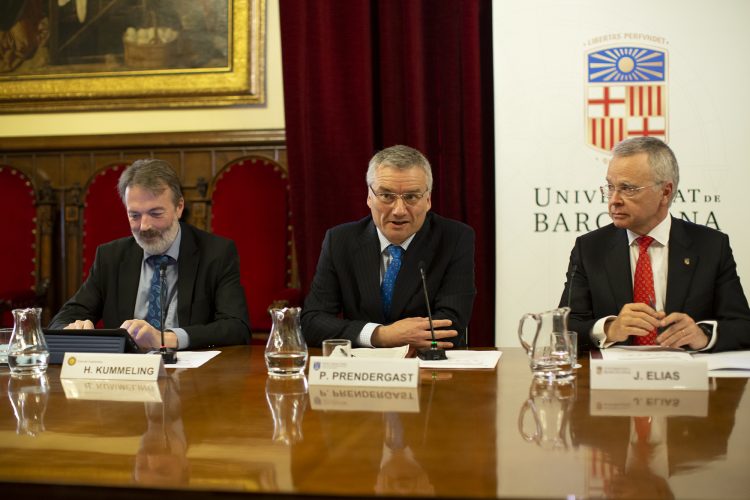Trinity’s “European University” alliance has been announced as a successful applicant for a new EU initiative promoting cooperation between universities in the European Union.
Trinity is one of five universities comprising the CHARM-EU (Challenge-driven, Accessible, Research-based, Mobile European University) alliance, which seeks to promote the United Nations’ Sustainable Development Goals.
The alliance will receive European Commission funding as part of an initiative to improve the quality and attractiveness of European higher education and boost cooperation between institutions. 17 alliances, involving 114 universities, have been selected in total. Each alliance will receive up to €5 million in the next three years to start implementing their plans.
As part of CHARM-EU, Trinity will form part of an inter-university campus around which alliance members will pool their expertise, platforms and resources to deliver joint curricula or modules covering various disciplines.
According to a Trinity press statement, these curricula will be “very flexible and allow students to personalise their education, choosing what, where and when to study to get a European degree”.
Trinity’s four partner universities are Eötvös Loránd University in Hungary, Spain’s University of Barcelona, the University of Montpellier in France and Utrecht University in the Netherlands. Earlier this year, Trinity signed a foundational agreement to form part of CHARM-EU with these universities.
Speaking at the signing of the foundational agreement in January, Provost Patrick Prendergast said: “Trinity is delighted to be part of this new network of European universities, cooperating together without frontiers. We will focus on the United Nations’ Sustainable Development Goals, providing training to our European students in becoming global citizens.”
“We need education programmes and research at the frontiers of knowledge to reduce poverty and the overall human pressure on our planet. A truly sustainable planet requires a global effort. As individuals, institutions, cities and countries, we all have an essential part to play and through this collective European network we hope our universities will make a significant impact.”
Dublin City University (DCU)’s alliance also received European Commission funding. ECIU University (European Consortium of Innovative Universities) will deliver a three year pilot to pioneer challenge-based education on a European scale.
Minister of State for Higher Education Mary Mitchell O’Connor welcomed the announcement of the first round of successful applicants in the European University initiative today. She said: “I am delighted that two of our higher education institutions are members of successful consortia in this first round of the European Universities Initiative and I would like to congratulate the teams on this significant achievement
“We must remember that these partnerships are the trailblazers in the European Universities initiative. There will be further calls for funding into the future. I agree with the European Commission when they say that there were only winners and future winners in this first call and I would encourage those who tried and those who did not try on this occasion to progress proposals for the second pilot call later in 2019.”
Tibor Navracsics, European Commissioner for Education, Culture, Youth and Sport, said: “I am pleased to see the ambition of the first 17 European universities, which will act as role models for others across the EU. They will enable the next generation of students to experience Europe by studying in different countries.”
“I am convinced that this initiative, a key building block of the European Education Area, will be a real game changer for higher education in Europe, boosting excellence and inclusion.”
The alliances were chosen based on an evaluation carried out by 26 independent external experts, including rectors, professors and researchers, appointed by the European Commission.






